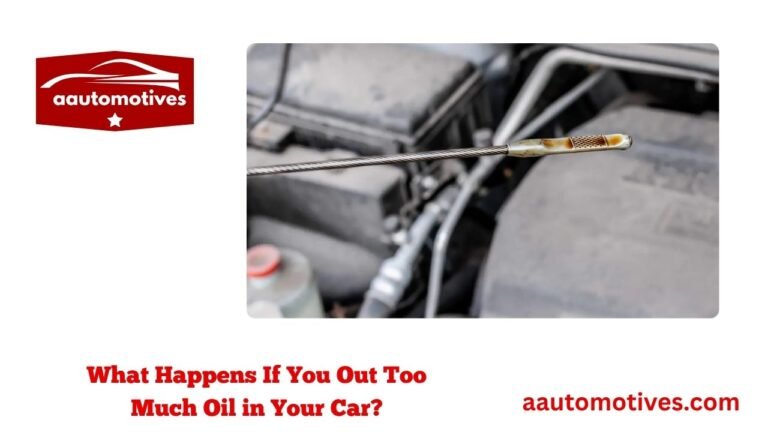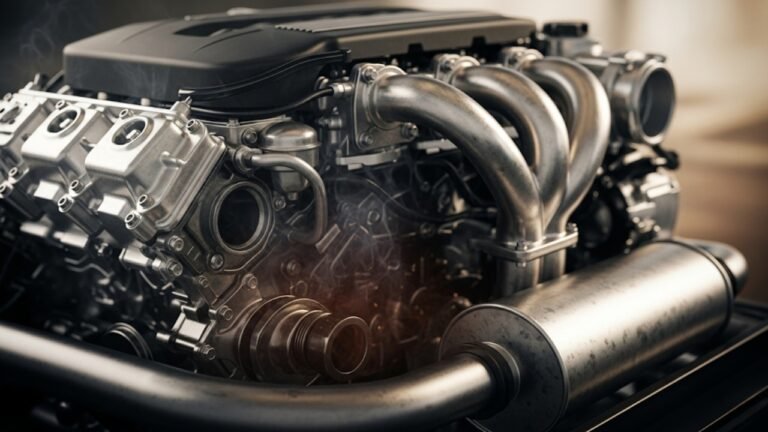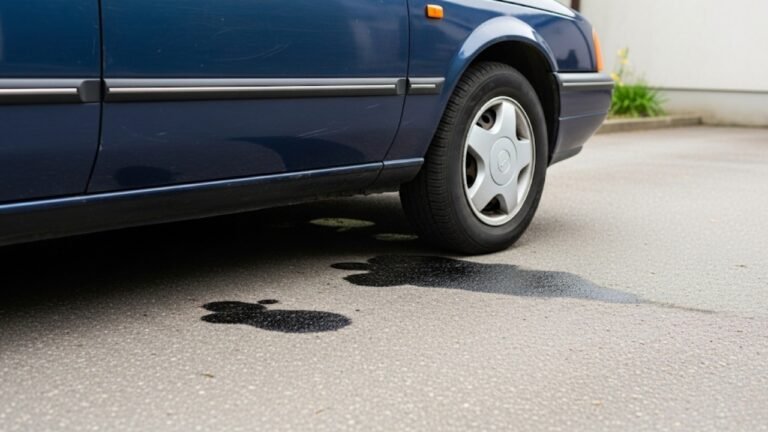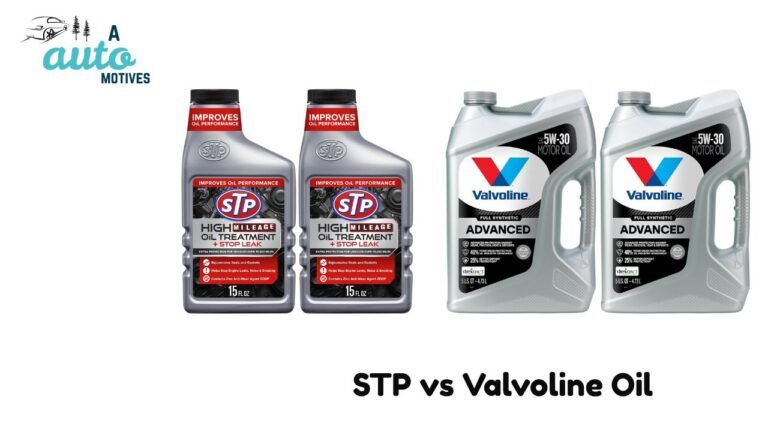Is Havoline Good Oil? My Surprising Experience
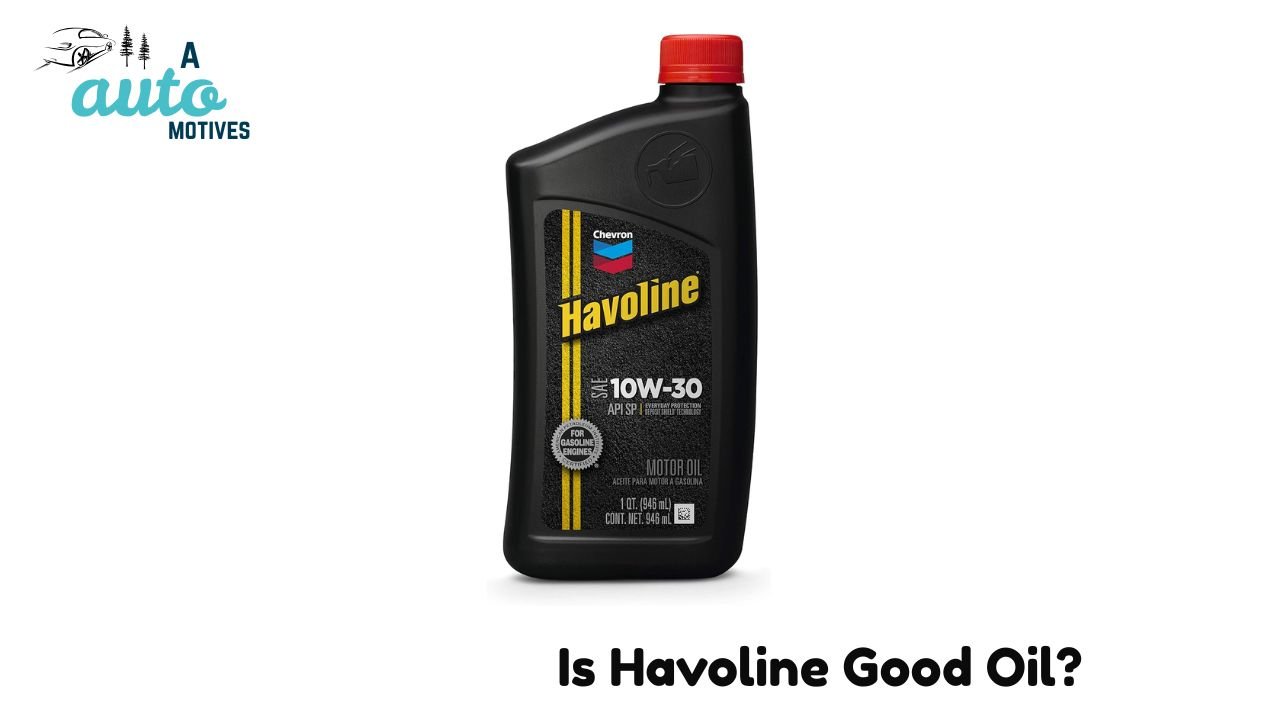
Choosing the right engine oil sometimes feels like trying to pick the perfect coffee blend — everyone swears theirs is the best, but only you can tell which one really hits the spot for your car. I’ve tried plenty over the years — from budget oils to premium synthetics — and one name that kept popping up was Havoline.
At first, I wasn’t sure if it was worth the hype. But curiosity (and a slightly squeaky engine) got the better of me, so I gave it a try. What I found was pretty surprising.
In this article, I’ll share my honest experience with Havoline — from engine performance and fuel economy to how it handles heat, mileage, and wear. By the end, you’ll know whether this oil deserves a place in your car or just on the shelf.
Table of Contents
-
Performance Review: My Real-World Test
-
What I Liked About Havoline
-
What Could Be Better
-
Comparison With Other Oils
-
Who Should Try It?
-
Final Verdict
-
FAQs
Performance Review: My Real-World Test
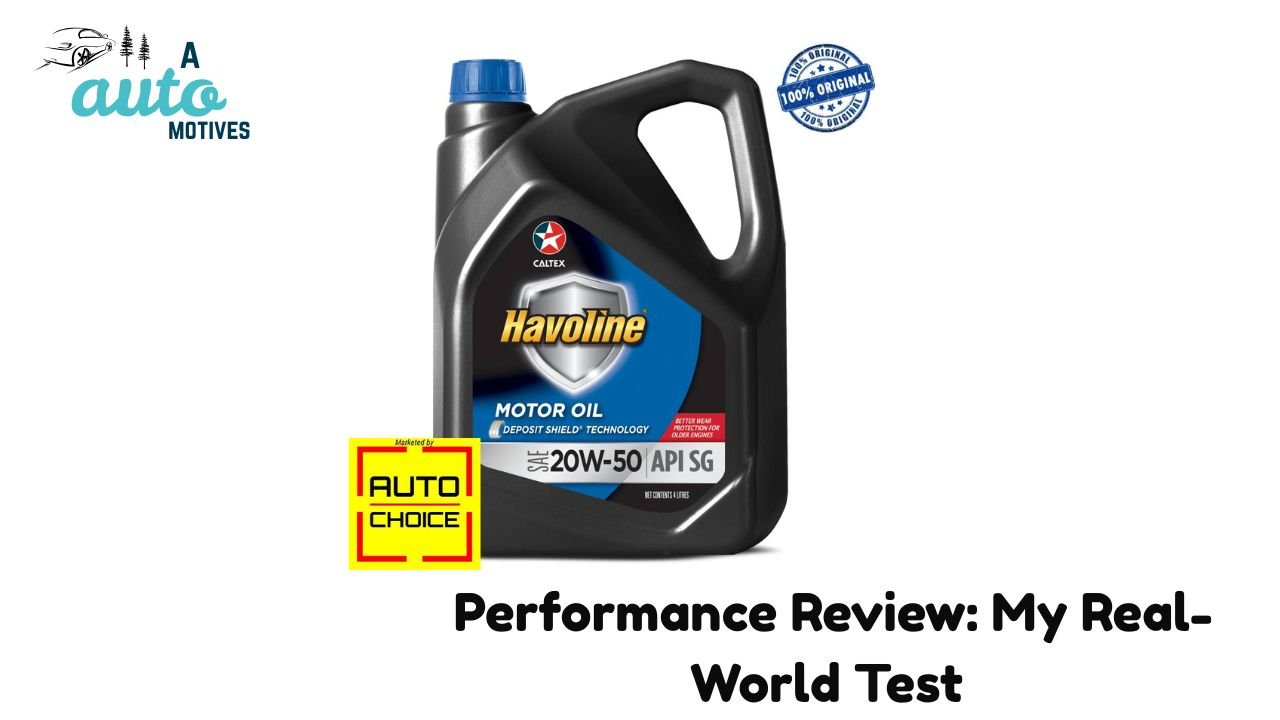
Let’s be honest — reading specs on an oil label doesn’t always tell you how it feels in your car. So instead of just quoting numbers, I decided to run my own small test.
I used Havoline Synthetic Blend 5W-30 in my daily driver — a 2015 Toyota Corolla that’s clocked over 110,000 miles. Before that, I was using another well-known brand (which I won’t name to keep things friendly).
Here’s how Havoline stacked up after six months and about 5,000 miles of mixed driving:
Lubrication & Smoothness
Within a week of the oil change, I noticed something subtle but satisfying — my engine was quieter. It didn’t have that faint ticking sound during idle anymore. The car felt smoother, especially on highway drives.
Havoline claims its formula reduces engine friction by forming a strong, consistent oil film between moving parts — and honestly, I could feel that difference. The acceleration felt cleaner, and the engine tone was more relaxed, like it wasn’t working as hard.
Even after 100°F summer heat, the oil didn’t break down or thin out noticeably. That’s a huge plus because thinner oil under heat can lead to metal-on-metal wear, which shortens engine life.
My takeaway: Havoline’s friction-reducing properties are no marketing gimmick — it genuinely helps your engine stay smooth and calm under pressure.
Engine Cleanliness
If you’ve ever opened your oil cap and seen dark sludge, you know how disheartening it is. Sludge can choke your engine’s performance over time.
After a few months on Havoline, I checked the inside of my valve cover area — it looked remarkably clean. The oil stayed clear longer than I expected too. Usually, by the second month, I see darker oil during checks, but this one stayed golden well into month three.
That’s probably thanks to the detergent additives Havoline uses. They break down carbon deposits and stop new sludge from forming.
In simple terms: My engine looked like it had just come from a spa — no gunk, no buildup, just clean metal.
Fuel Efficiency
Now, this part really surprised me. I didn’t expect an oil change to affect mileage much. But after a couple of full tanks, I noticed my MPG (miles per gallon) creeping up — from around 26 to 28 MPG.
It wasn’t a dramatic leap, but when gas prices are high, even a small bump matters. I think the reduced friction played a role — less resistance inside the engine means it doesn’t work as hard, which saves fuel.
Fuel efficiency boost: About 7–8% improvement in my case. Not bad for just switching oil!
Heat Resistance
Living in a place where summers can feel like a car oven, I was curious how Havoline would handle high temperatures.
During a 200-mile summer trip with the A/C on full blast, my car ran cooler than usual. No knocking, no overheating, and no oil smell — which can happen if oil starts burning.
Havoline claims to have 20% better thermal stability than standard oils, and based on my experience, I’d say that’s believable. The oil didn’t thin out or degrade, even in extreme heat.
Verdict: Excellent heat endurance — ideal for hot climates or long highway runs.
Longevity & Change Intervals
Here’s the real test: how long does it last before needing a change?
With my previous oil, I’d start seeing performance dips around 3,500 miles. But Havoline kept things steady all the way up to 5,000 miles, and even then, the oil looked healthy.
I could’ve easily stretched it to 6,000 miles, but I decided to play it safe. The manufacturer suggests 5,000–7,500 miles depending on your driving conditions, and that feels accurate.
For me: Havoline lasts longer than conventional oils but still needs regular checks for older engines.
What I Liked About Havoline
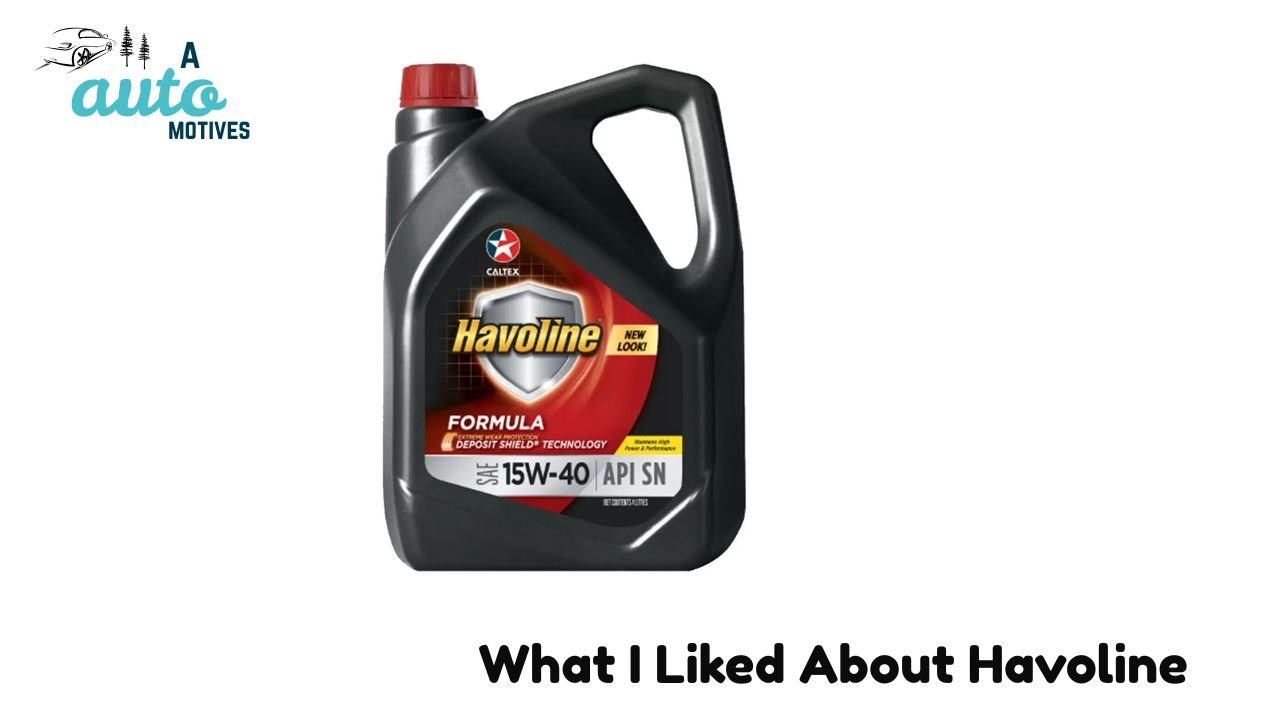
Let’s break down what really stood out after using Havoline for half a year:
1. Smoother Engine Operation
The difference was almost instant. My car idled quietly, accelerated better, and stayed calm during long drives. It’s like giving your engine a cup of premium coffee every morning — smooth, steady, and ready to go.
2. Improved Fuel Mileage
That small jump from 26 MPG to 28 MPG might sound minor, but over months of driving, it adds up. It’s proof that Havoline’s low-friction formula isn’t just a lab claim — it’s real-world effective.
3. Great Heat Handling
This was my favorite part. Whether it was stuck in city traffic under scorching heat or cruising at 80 mph on the highway, the oil didn’t flinch. No overheating, no burning smell — just consistent protection.
4. Clean Engine with Less Sludge
I love how clean the internal parts stayed. It gives me confidence that my engine will last longer. Sludge is like cholesterol for your car, and Havoline keeps those “arteries” clean.
5. Perfect for Daily Drivers
If you use your car for commuting, road trips, or errands — Havoline fits that lifestyle perfectly. It offers premium protection without a premium price tag, which is rare these days.
What Could Be Better
Of course, no product is perfect. Here are a few things that could be improved or at least considered before you make the switch:
1. Slightly Higher Cost
Compared to budget brands, Havoline is a bit pricier. Not by much, but enough to notice if you change oil frequently. However, considering the longer life and cleaner performance, I think it’s worth the trade.
2. Change Intervals Could Be Longer
Some synthetic oils today can go 7,500 to 10,000 miles between changes. Havoline recommends around 5,000–6,000. That’s not bad, but if you’re looking for an ultra-long interval oil, you might find others that stretch further.
3. Not for Every Engine Type
Havoline works beautifully in gasoline engines, but for diesel engines, you’ll need a different version (like Havoline ProDS Diesel). Always double-check your manual before switching.
4. Occasional Burn-Off in Older Engines
While I didn’t experience this personally, I’ve seen a few reviews mentioning minor oil consumption in older or high-wear engines. That’s fairly common, but worth keeping in mind if your car already uses a bit of oil.
Comparison With Other Oils (Quick Overview)
Now, this is where things get interesting. To give you a full picture, I compared Havoline with another oil I’ve used — Quaker State. Both are reputable and widely available, but they cater to slightly different audiences.
Here’s a quick comparison chart from my experience and research:
| Performance Area | Havoline | Quaker State |
|---|---|---|
| Engine Smoothness | Excellent | Excellent |
| Fuel Efficiency | Slightly Better | Good |
| Sludge Protection | Strong | Strong |
| Heat Resistance | Superior | Strong |
| Price | Moderate | Slightly Lower |
| Change Interval | 5,000–7,000 miles | 5,000–7,500 miles |
| Ideal For | Daily drivers, hot climates | Balanced performance |
Who Should Use Havoline Oil?
After testing Havoline in various conditions, I realized it’s not just “one-size-fits-all.” It shines in specific situations and with certain drivers. So, before you grab a bottle, here’s my take on who will benefit most from it.
1. Daily Commuters
If you drive to work every day, sit in traffic, and rack up thousands of miles each year, Havoline is perfect for you. Its consistent viscosity and strong detergent formula protect your engine during frequent stop-and-go driving, which is where most wear happens.
Think of it like sunscreen for your engine — even when you don’t realize it, it’s working quietly in the background to shield against damage.
2. High-Mileage Vehicle Owners
Older engines often burn oil faster or accumulate sludge more easily. Havoline’s anti-wear additives help fight that problem. I noticed that it doesn’t just lubricate — it revitalizes.
If your car has crossed 100,000 miles (like mine), you’ll appreciate how Havoline seems to give it a second wind. It smooths rough idles, quiets knocks, and keeps things clean where it matters most.
3. Hot-Weather Drivers
Live somewhere warm? Then heat protection should be your top priority. Havoline has excellent thermal stability, meaning it won’t break down under scorching conditions.
I tested it on a road trip through desert-like temperatures, and it handled it like a champ. While some oils start to thin out or burn, Havoline stayed strong — no oil smell, no dark sludge, no drop in performance.
It’s like having a heat-resistant shield for your engine.
4. Cold Climate Commuters
Interestingly, Havoline also does well in cold starts. On chilly mornings, my car fired up quickly without the sluggish cranking that thick oils often cause.
So, if you’re in an area where winters bite hard, this oil’s low-temperature flow properties will make your morning starts much easier.
5. Balanced Drivers (Not Too Aggressive, Not Too Lazy)
If you’re like me — someone who drives responsibly but occasionally enjoys a little throttle — Havoline offers the best of both worlds. It gives you protection under pressure without feeling too heavy or restrictive.
For performance drivers or long-haul commuters, it’s a dependable middle ground between budget and premium brands.
Final Verdict: Is Havoline Really Good Oil?
After months of testing, several oil checks, and countless miles, here’s my honest answer: Yes — Havoline is genuinely good oil.
It may not be the absolute cheapest, but the value-to-performance ratio is impressive. It does everything you’d want an oil to do — protect, clean, cool, and last — with no drama.
Here’s a quick breakdown of my findings:
| Category | My Experience | Rating (Out of 10) |
|---|---|---|
| Lubrication & Smoothness | Noticeably better | 9.5 |
| Engine Cleanliness | Very clean | 9 |
| Fuel Efficiency | Slight improvement | 8.5 |
| Heat Resistance | Excellent | 9.5 |
| Longevity | Above average | 8.5 |
| Overall Value | Strong performer | 9 |
Pros:
-
Smooth engine operation
-
Excellent wear protection
-
Great heat resistance
-
Improved fuel efficiency
-
Ideal for daily and high-mileage use
Cons:
-
Slightly pricier than budget oils
-
Change interval not as long as ultra-premium synthetics
If I had to sum it up in one line, I’d say:
Havoline isn’t flashy — it’s just quietly reliable. It’s the kind of oil that makes your engine thank you silently with every mile.
For people who care about engine health over hype, Havoline is one of those “set it and forget it” products — you pour it in, and it simply performs.
FAQs About Havoline Engine Oil
Let’s tackle a few common questions I get from friends and readers.
1. Is Havoline good for high-mileage cars?
Absolutely. Havoline has anti-wear and cleaning agents that help protect aging engines. It reduces friction and sludge, making it a great fit for vehicles with over 100,000 miles.
2. How often should I change Havoline oil?
It depends on your type of oil:
-
Synthetic Blend: Every 5,000–6,000 miles
-
Full Synthetic: Every 7,000–10,000 miles
If you drive mostly in heavy traffic or hot climates, stick to the lower end of that range.
3. Does Havoline improve fuel efficiency?
Yes — slightly. In my case, I saw a 7–8% improvement in mileage. It reduces friction, which helps the engine run more efficiently and use less gas.
4. Can I use Havoline in older cars?
Yes, but choose the right version. Havoline’s conventional or high-mileage formulas work best for older engines, while synthetic blends are ideal for newer models.
5. Is Havoline good for extreme weather?
Definitely. That’s one of its strongest points. It maintains stable viscosity in both hot and cold conditions, meaning it won’t thin out in heat or thicken up in cold.
6. Is Havoline worth the price?
In my opinion — yes. You’re paying a little more upfront but saving in the long run through fewer repairs, smoother performance, and better fuel economy.
7. Does Havoline meet major certifications?
Yes, most Havoline oils meet or exceed API SP and ILSAC GF-6A standards. That means it’s approved for most modern gasoline engines and provides strong protection against wear and oxidation.
8. What’s the difference between Havoline and other oils?
Havoline uses a Deposit Shield® technology, which actively cleans and protects internal parts. It’s a unique additive system that keeps engines cleaner longer compared to many budget brands.
The Bottom Line
At the end of the day, engine oil is like the blood that keeps your car alive — and you wouldn’t settle for poor-quality blood, right?
Havoline impressed me with its quiet reliability. It’s not just marketing talk — it delivers. Whether you drive short city trips or long highway journeys, it keeps your engine smooth, cool, and clean.
It’s not the cheapest, but it’s honestly one of the most balanced oils I’ve ever used. So, if you’re looking for something dependable, tested, and trustworthy — Havoline is worth every drop.
Final Thoughts:
If you’ve ever wondered, “Is Havoline good oil?” — my answer, from real experience, is a confident yes. It’s the kind of oil that earns your trust mile after mile — not through fancy claims, but through consistent performance.


